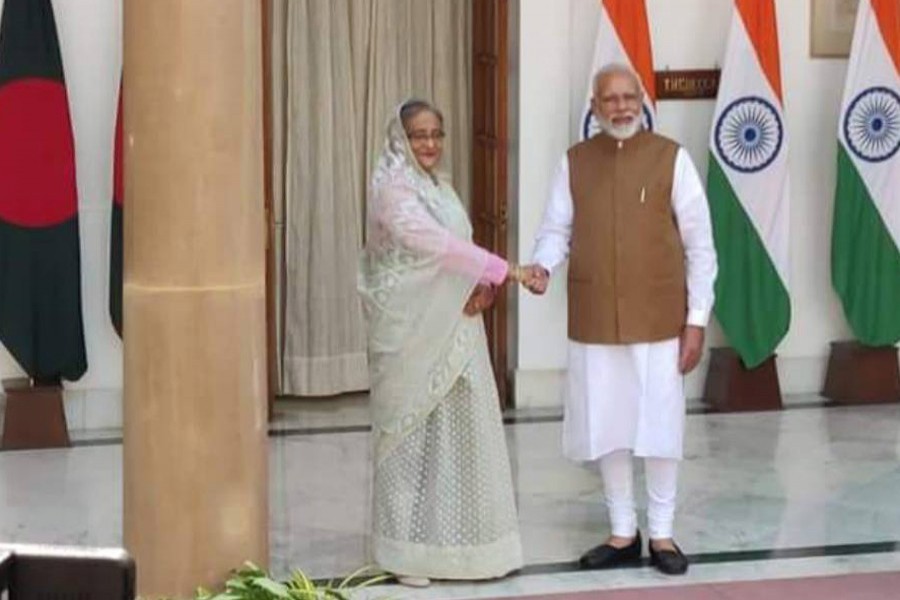The Prime Minister's call last week in New Delhi urging international businesses to invest in potential non-conventional areas in Bangladesh is worth introspection and follow-up by all concerned. While the PM's call was for investment from all around the world, at the Country Strategy Dialogue on Bangladesh at the India Economic Summit 2019 of the World Economic Forum, its principal focus was on the Indian investors. Such areas as education, light-engineering, electronics, automotive industry, artificial intelligence industry were flagged for special attention. The strength of the youth in terms of their number and a ubiquitous freelancing community of IT experts figuring up to more than half a million were underlined as the positive aspects of Bangladesh capable of attracting investments. Indeed, a liberal investment regime in which there is enough of legal guarantee for foreigners' money should lure outsiders for coming to Bangladesh. There are offers of generous fiscal incentives, concession of machinery import, unrestricted exit policy and full repatriation of dividend and capital on exit. The proposed one hundred special economic zones in the country, of which twelve are already functional, should also be of singular importance in that they make utilisation of FDIs smooth, systematic and mutually rewarding. A 'seamless economic space' in Bangladesh between the eastern areas of India, China and South-East Asia with a combined market-population of three billion may be considered the bedrock of the whole proposal for foreign investors. A composite initiative along the line can turn the areas mentioned into an economic hub.
Now, while the leaders propose and show the way, it is the duty of the implementers, that is bureaucrats and technocrats, at home and abroad to take everything towards realisation. Recent policy reforms have seen a record USD 3.61 billion worth of foreign direct investment in the country, China displacing the US with $1.03 billion as the table-topper in 2018. Year-to year, it was a rise of nearly 68 per cent. And yet, a number of issues scatter along the path of good business, both domestic and foreign. Although recent policy reforms have started to yield results, part of the bureaucracy has been known to lack inter-departmental cohesion. In a fast-moving world where the main goal is encouraging foreigners to come to Bangladesh with their money for business, it is self-defeating to be laidback. Even business houses and bodies inside the country have noted this lack of coordination among various government wings. These start from port functions to airport immigration services, from government's investment offices to law enforcers, even though there are good-intentioned people everywhere. When a foreign investor comes, the first thing he will like to see is a structure that responds well and moves fast. Indeed, investment, despite its record growth, would have been higher if the scenario was better.
The Bangladesh Prime Minister has invited foreign investors from the podium of such a high-profile forum outside the country. The task is now for the bureaucracy, development agencies and public-private partnerships to back it up with all necessary steps. The first order of business is to follow up on the prime minister's proposals and engage potential foreign investors in areas earmarked by the Bangladesh leader. Here it is relevant to point out that a high-profile meeting in the capital recently urged the creation of an interactive task force composed of the public and private entities to remove business and investment bottlenecks. That could be a nucleus to push for greater infusion of target-oriented FDI utilisation on a wider scale.


